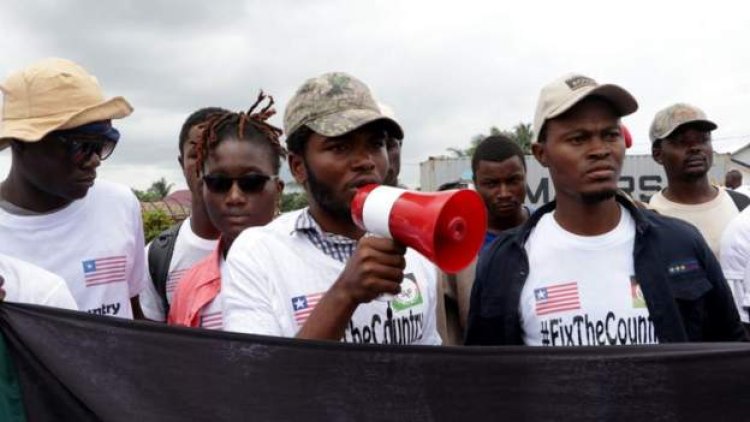'Bloody independence day' arrests ordered in Liberia
They had gathered on 26 July - when the country marked the anniversary of its independence - in front of the US embassy in the capital, Monrovia

After coming under enormous pressure to act, Liberia’s President George Weah has ordered the justice ministry and police to arrest individuals involved in assaulting university students who were protesting over the high cost of living last week.
They had gathered on 26 July - when the country marked the anniversary of its independence - in front of the US embassy in the capital, Monrovia
The student group, rallying under the banner Fix the Country, wanted to present their statement of concern to US officials when they came under attack, allegedly from ruling party supporters.
A video showed some of the attackers wearing pro-government shirts with the inscription: “Weah is fixing the country.”
President Weah was hosting West African heads of state, including the presidents of Nigeria, The Gambia, and Guinea-Bissau, elsewhere in the capital at an official ceremony when the incident happened.
In the attack, student leader Christopher Sivili, popularly known as “Walter Sisulu”, was particularly manhandled. His trousers were removed and he was severely flogged before, blood-soaked, and he was taken from the scene.
He is currently fighting for his life at a local hospital, according to social media posts from friends and sympathizers.
The government’s silence over the incident has been condemned by many people.
The police said no arrests had been made as no one had complained about being attacked.
In his nationwide radio address on Monday evening, President Weah distanced his party from the trouble.
"I have mandated the Ministry of Justice and the entire national security apparatus to immediately arrest all those involved in the violent incident... and ensure that they face the full weight of the law," he said.
The episode, dubbed “bloody independence day”, has increased tension as Liberia prepares for the next general and presidential elections in 15 months.

 Boakyewaa Lawrencia
Boakyewaa Lawrencia 


































